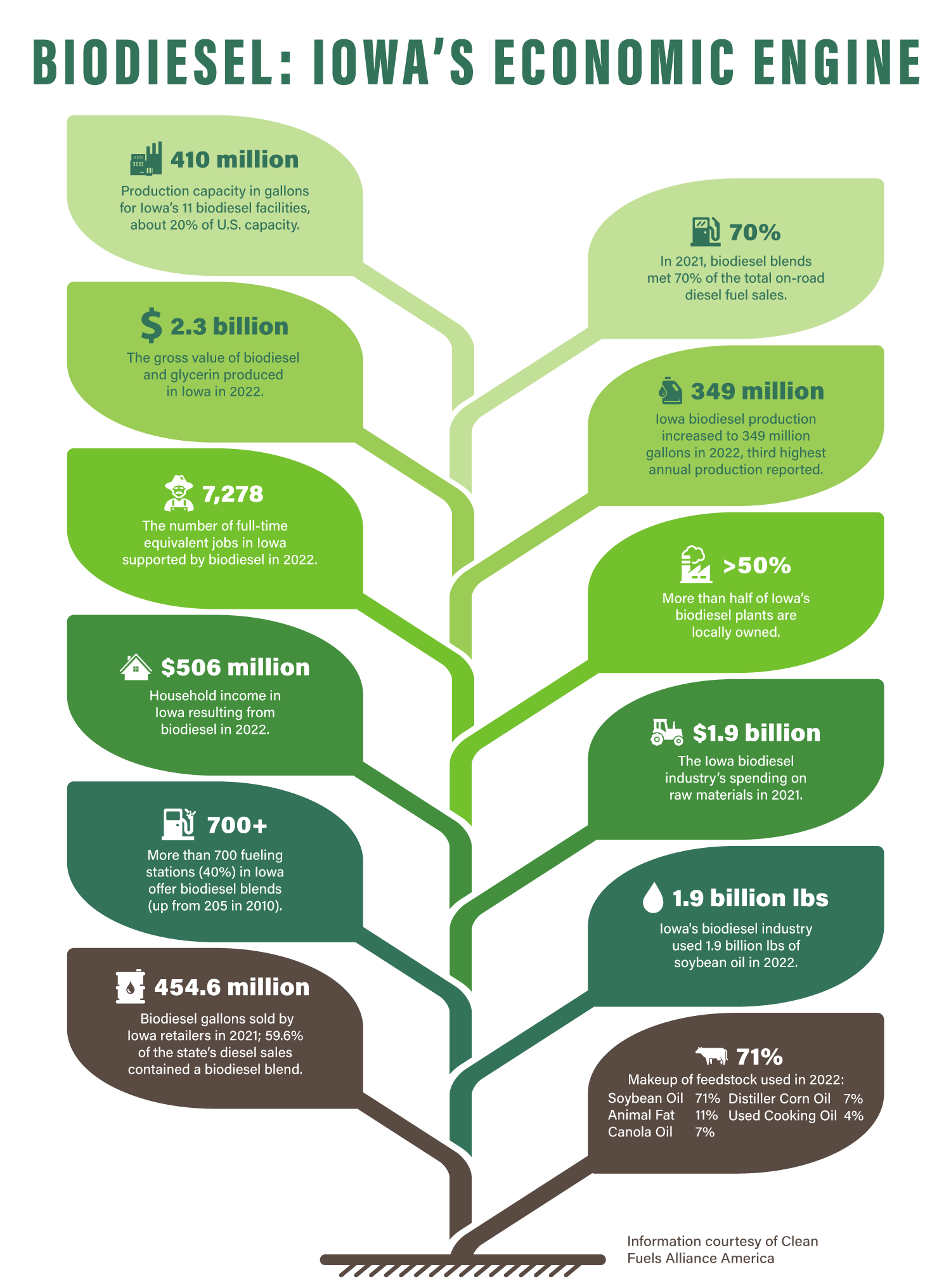Biofuels produced from soybeans
March 30, 2023
Sustainable aviation fuel is . . .
- A substitute for fossil jet fuels that reduces carbon emissions. SAF is made from renewable biomass and waste resources and can deliver the performance of petroleum-based jet fuel. SAF can be blended with fossil jet fuel and the blended fuel requires no special infrastructure or equipment changes.
- SAF must have the same qualities and characteristics as conventional jet fuel to substitute it. Currently, the industry is focused on producing SAF for a “drop-in” replacement to conventional jet fuel. Drop-in fuels are combined with the petroleum-based fuel either as a blend or potentially, in the future, as a 100% replacement.
Biodiesel is . . .
- Produced through esterification or transesterification, a simple process that reacts a fat or oil with a small amount of alcohol (typically methanol) to produce a finished fuel.
- A "drop-in" fuel that can be used in all engines and equipment up to 20% and many up to 100%. Non-toxic, biodegradable, ultra-low sulfur and 0% aromatics.
- Better for engines due to higher cetane and improved lubricity.

Renewable diesel is . . .
- Produced through hydrotreating, a process similar to a traditional refinery operation. This high-heat, high-pressure process produces a fuel that is chemically indistinguishable from conventional diesel.
- A "drop-in" fuel that can be used in all engines and equipment up to 100%.
- Ultra-low sulfur and 0% aromatics.
- Better for engines due to higher cetane.
Back